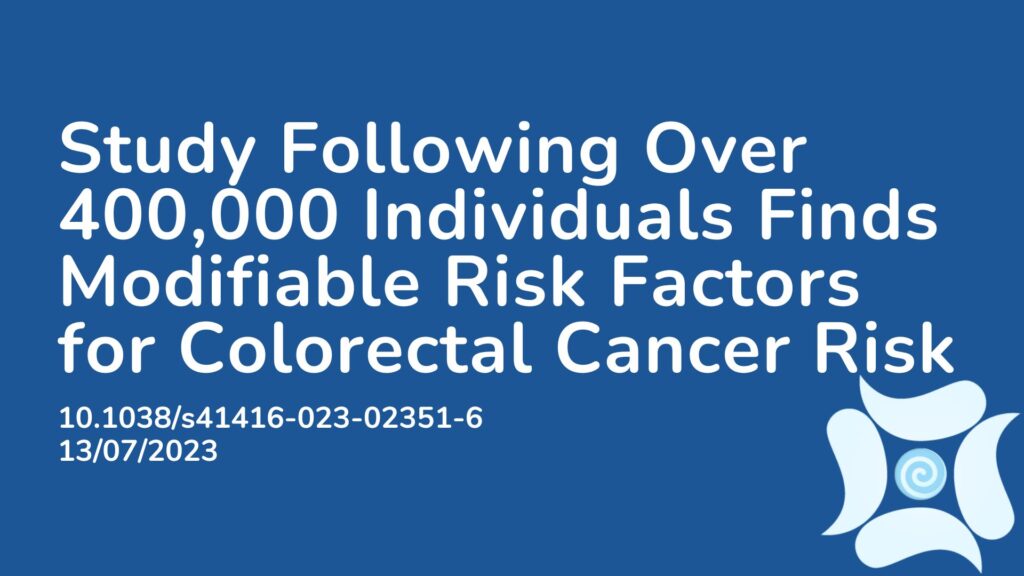Summary:
Research has shown that an increased body weight may be associated with risk of varying types of cancer. The purpose of this paper was to assess whether increased body weight is also associated with a higher risk of colorectal cancer (CRC). The incidence of CRC is growing rapidly, especially in younger populations. There is sufficient data that links high meat consumption, a low fiber diet and a sedentary lifestyle to the risk of CRC, which are lifestyle factors that may also increase weight. This paper followed 453,049 overweight participants to see whether a portion developed CRC and found that 4,794 did develop CRC. The authors concluded that weight may be a larger predictor of CRC than currently understood and that weight loss measures for individuals who are overweight may be a preventive tool for cancers, in particular CRC.
Abstract:
Background: The association between excess weight and colorectal cancer (CRC) risk may have been underestimated due to potential weight loss during pre-clinical sojourn time of CRC. We aimed to investigate this association and the corresponding population attributable fraction (PAF), accounting for prediagnostic weight loss. Methods: Data from the UK Biobank prospective cohort were used. Multivariable adjusted hazard ratios (HR) and their 95% confidence intervals (CI) for various periods of follow-up and the corresponding PAF of excess weight were calculated. Results: During a median of 10.0 years of follow-up, of 453,049 participants, 4794 developed CRC. The excess weight–CRC association became substantially stronger with including increasing lengths of follow-up in the analyses and further excluding the initial years of follow-up. HRs (95% CIs) for overweight and obesity were 1.06 (0.97–1.16) and 1.14 (1.03–1.26) after 7 years of follow-up, 1.13 (1.05–1.21) and 1.23 (1.14–1.33) when including complete follow-up length, and 1.26 (1.12–1.43) and 1.42 (1.24–1.63) when excluding the initial 7 years of follow-up. The corresponding PAFs of excess weight were estimated as 6.8%, 11.3%, and 19.0%, respectively. Conclusions: Comprehensive consideration of the potential effect of prediagnostic weight loss discloses a much stronger impact of excess body weight on CRC risk than previously assumed.
Article Publication Date: 13/07/2023
DOI: 10.1038/s41416-023-02351-6




